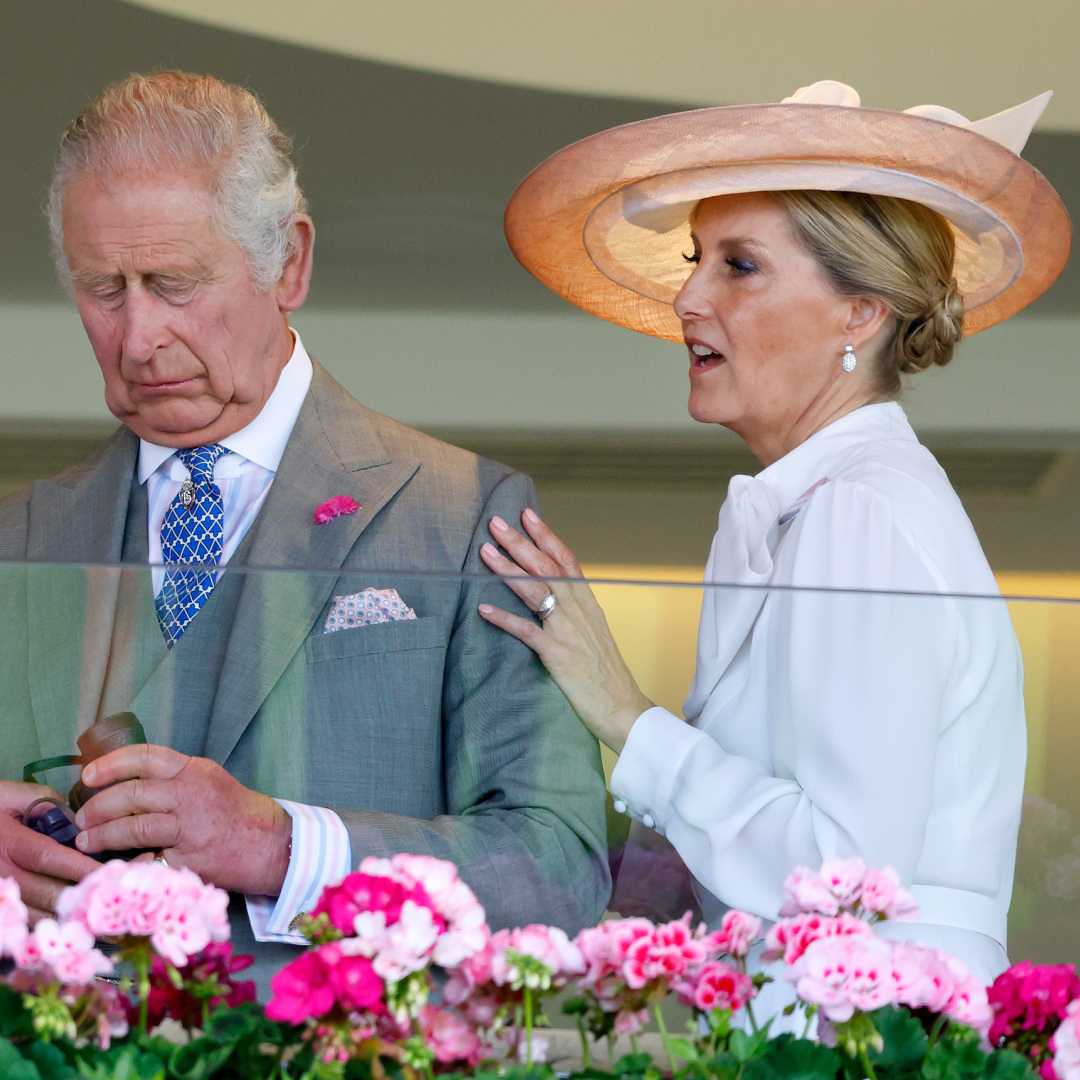What Is the Process Like for Freezing Your Eggs?
Since the quality and number of eggs a woman has goes down with age, increasingly, women are electing to freeze their eggs when they are young. A fertility expert breaks down what that process is like, and how successful you can expect it to be when you choose to thaw the eggs.


Since the quality and number of eggs a woman has goes down with age, increasingly, women are electing to freeze their eggs when they are young—with a good number of high-quality eggs still available—and then continue to pursue their education or careers or look for a suitable partner until they’re ready (partnered or not) to have a child. According to an original survey Marie Claire conducted in partnership with SurveyMonkey, 33 percent of Millennial women have delayed having children in order to focus on their career, while 26 percent have done so because they've yet to find the right partner. Other individuals may choose egg freezing as a means of fertility preservation because they are about to undergo medical treatment that could impact egg quality, such as chemotherapy or gender reassignment surgery.
Women ages 37 and younger with normal ovarian reserve levels—which is typically determined through AMH testing—make for good egg freezing candidates, says Aaron K. Styer, M.D., reproductive endocrinologist and co-medical director of CCRM Boston. (An AMH test is a blood test to check a woman’s egg supply; “normal” AMH ranges fall between 1–2, though the range will vary based on the type of testing your clinic does, and numbers above or below this do not indicate an easier or harder time conceiving.)
Still, like so many things, age is just a number. “Strict age thresholds should not be applied,” maintains Dr. Styer. “The decisions to proceed with egg freezing should be determined on an individual basis.” In other words, regardless of your age, if you’re interested in freezing your eggs, go ahead and schedule an appointment with your OB-GYN or a fertility doctor to review your medical history and begin testing to see if this form of fertility preservation is a good fit for you.
Freezing your eggs starts with the same hormone-injection process used in in vitro fertilization (IVF). The only difference: After the eggs are collected, instead of creating embryos, the eggs are frozen. When the woman decides she wants to become pregnant, they eggs are thawed and fertilized, and the embryos are transferred to the uterus.
An egg freezing cycle typically takes three weeks to complete, mimicking the initial stages of the IVF process, including one to two weeks of hormonal priming or birth control pills to temporarily turn off natural hormones (this step can be skipped if there is an urgent need for egg freezing, such as fertility preservation before cancer treatments) and to synchronize the growth of the egg follicles. This is followed by seven to 12 days of hormone injections to stimulate the ovaries and facilitate the development of multiple follicles (a.k.a. eggs).
Once the eggs are mature, physicians use ultrasound guidance to place a needle through the vagina (the patient is under intravenous sedation) and remove the eggs. (Mild cramping afterwards can occur.)
While egg freezing seems like (and is often marketed as) a miracle for women wanting to increase their chances of a healthy pregnancy later in life (or following a fertility-killing medical treatment), it’s important to remember that not all eggs harvested and frozen during the process will be viable for fertilization later on, and even then, not all eggs will fertilize or grow into embryos viable for transfer.
Stay In The Know
Get exclusive access to fashion and beauty trends, hot-off-the-press celebrity news, and more.
There's not enough data at the moment to say how successful the procedure is, as the vast majority of women who have chosen to freeze their eggs haven't yet tried to use them. According to one prediction model, women who freeze their eggs at age 36 or older will see about an 85-percent successful thaw rate, while a 95 percent successful thaw rate is predicted for eggs frozen when the woman was younger. Meanwhile, one 2016 study published in the journal Fertility and Sterility, found that 50 percent of women 35 or younger gave birth using frozen-then-thawed eggs, compared to 23 percent of women 36 or older.
This article has been updated.
Still have questions about getting pregnant? Check out our fertility FAQ here.
Editors’ note: We use the terms “woman” and “female” in this article to refer to people with internal reproductive organs; however we understand that not everyone with internal reproductive organs identifies as a woman or a female. We use the terms “man” and “male” to refer to people with external reproductive organs; however we understand that not everyone with external reproductive organs identifies as a man or a male.
Jennifer Gerson is a Maggie Award-winning journalist whose reporting on reproductive rights, women's health, and sexual violence regularly appears in Cosmopolitan, as well as The Guardian, Yahoo, Allure, Teen Vogue, Mic and other national publications.
-
 Duchess Sophie Stepped Up to Represent King Charles at Event Amid Calls for King Charles to "Slow Down"
Duchess Sophie Stepped Up to Represent King Charles at Event Amid Calls for King Charles to "Slow Down"The Duchess of Edinburgh filled in for The King at the Royal Military Academy Sandhurst.
By Kristin Contino Published
-
 See the Top-Scoring WNBA Draft Looks
See the Top-Scoring WNBA Draft LooksThis year's rookie class came to win.
By Halie LeSavage Published
-
 Julia Fox's Super Short Coachella Haircut Is a Cheeky Nod to 'White Lotus'
Julia Fox's Super Short Coachella Haircut Is a Cheeky Nod to 'White Lotus'Leslie Bibb fans, rise.
By Ariel Baker Published
-
 Senator Klobuchar: "Early Detection Saves Lives. It Saved Mine"
Senator Klobuchar: "Early Detection Saves Lives. It Saved Mine"Senator and breast cancer survivor Amy Klobuchar is encouraging women not to put off preventative care any longer.
By Senator Amy Klobuchar Published
-
 I'm an Egg Donor. Why Was It So Difficult for Me to Tell People That?
I'm an Egg Donor. Why Was It So Difficult for Me to Tell People That?Much like abortion, surrogacy, and IVF, becoming an egg donor was a reproductive choice that felt unfit for society’s standards of womanhood.
By Lauryn Chamberlain Published
-
 The 20 Best Probiotics to Keep Your Gut in Check
The 20 Best Probiotics to Keep Your Gut in CheckGut health = wealth.
By Julia Marzovilla Published
-
 Simone Biles Is Out of the Team Final at the Tokyo Olympics
Simone Biles Is Out of the Team Final at the Tokyo OlympicsShe withdrew from the event due to a medical issue, according to USA Gymnastics.
By Rachel Epstein Published
-
 The Truth About Thigh Gaps
The Truth About Thigh GapsWe're going to need you to stop right there.
By Kenny Thapoung Published
-
 The High Price of Living With Chronic Pain
The High Price of Living With Chronic PainThree women open up about how their conditions impact their bodies—and their wallets.
By Alice Oglethorpe Published
-
 I Used to Imagine Murdering the Men I Dated
I Used to Imagine Murdering the Men I DatedFalling in love helped me finally figure out why.
By Jessica Amento Published
-
 60 Workout Apps for Women Who Want Results (Without a Gym Membership)
60 Workout Apps for Women Who Want Results (Without a Gym Membership)Buying Guide Easy fitness plans you can follow without fear of judgment.
By Bianca Rodriguez Published